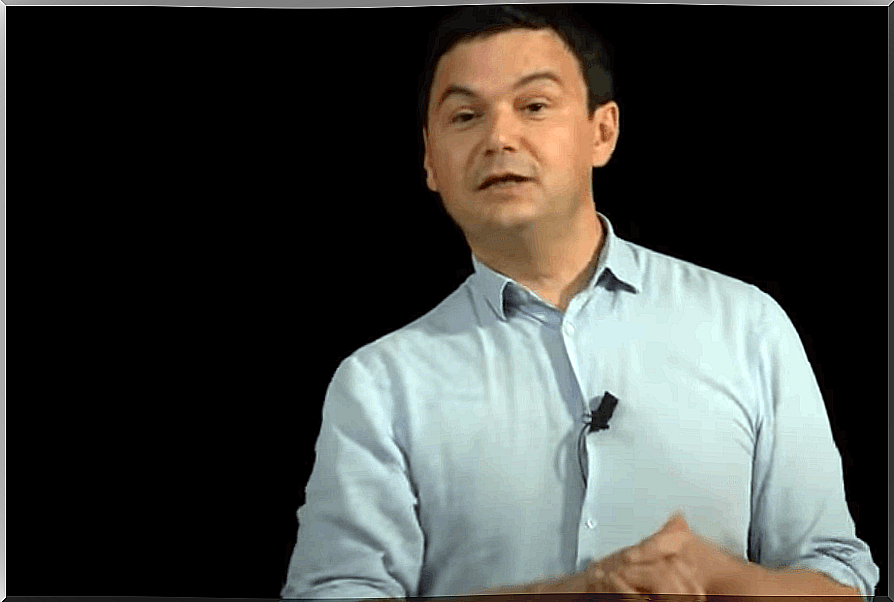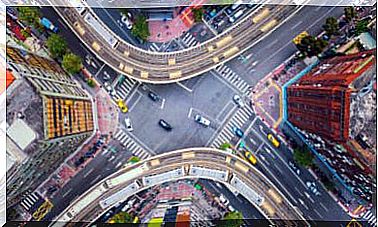Thomas Piketty: “inequality Is Not Natural

Thomas Piketty is one of the most important economists in the world and one of the most appreciated contemporary thinkers within different sectors. This French economist, specialist in inequality and income distribution, has received several awards for his work and, without a doubt, he is one of those authors worth knowing.
As can be assumed, Thomas Piketty has been a sharp critic of the neoliberal system. This system, which was imposed on almost everyone in the last decades, proposed the idea that the progress of the market would generate progress for all. Reality seems to show the opposite, since poverty and inequality have grown almost everywhere on the planet.
There are several ideas of Thomas Pikety that are considered revolutionary. One of the central points of his speech has to do with inequality, a phenomenon that has increased in the world and that for this thinker is the result of the system itself and not a natural result, as it has been wanted to see many times.

Thomas Piketty and the imbalance
In his various works, many of which have been passionately read by people of all latitudes, Thomas Piketty notes that there was a brutal rule of capital until the First World War. There was no way for someone to ascend socially if they did not bow to big capital, either by way of inheritance or by way of corruption.
After the Great War, other codes were installed in Europe. Work and study became the determining factors to improve economic conditions. However, he again returned to a situation of great social inequity.
After that period, and particularly since the 1980s, this trend was reversed. From the point of view of economics, he returned to the theses of the 19th century and again big capital became the axis of the economy and of politics. The consequence of this has been, mainly, an abysmal inequality.
Inequality is not natural
Thomas Piketty created an interactive database with data on the evolution of income in more than 20 countries in a span of almost three centuries. When he did that work, most economists agreed that inequality had increased around the world. However, what the data showed was that this inequality had become extreme: immoral.
Piketty proved that the richest 1% of the United States had doubled their wealth in the 20th century and that they held 20% of the national income. Thanks to proven data like this, the economist was able to argue that the concentration of capital is only possible if simultaneously there is a massive impoverishment of people.
However, why within the framework of a liberal system, such as the one that prevailed during the Great War, was there greater equity? Piketty thinks that this was only due to the fact that during the two world wars the enemy sides systematically attacked the centers of big capital. It was a fortuitous event that temporarily brought greater equality.

A progressive capitalism
Thomas Piketty points out that the State and the tax system play a fundamental role in mitigating or increasing inequality. When the gap is very wide, high-risk situations can be reached, as happened in 1929. This not only meant a great economic depression, but also strengthened anti-democratic sectors such as fascism, Nazism and communism.
Piketty’s proposal is of a social-democratic nature. Obviously, this is not a new position, but it is the first time that it has been supported in figures and in mathematical formulas. It is a question, then, not of prohibiting private property, but of setting precise limits on it. Along the same lines as Keynes, he points out that the State must regulate and limit this absurd concentration of capital through heavy taxes on capital.
Such taxes would serve to compensate those who have the least and prevent social differences from reaching intolerable limits. Blaming the poor for their situation and exalting billionaires, even if their only merit has been to receive an inheritance, are some of the ideological means that have been used to keep inequality intact.
What Thomas Piketty proposes is a progressive capitalism, or participatory socialism, based on two pillars: “Social property and the distribution of voting rights in companies and, on the other hand, temporary ownership and the circulation of capital.” This would make it possible to design more cooperative and stable societies, but, above all, truly democratic.









